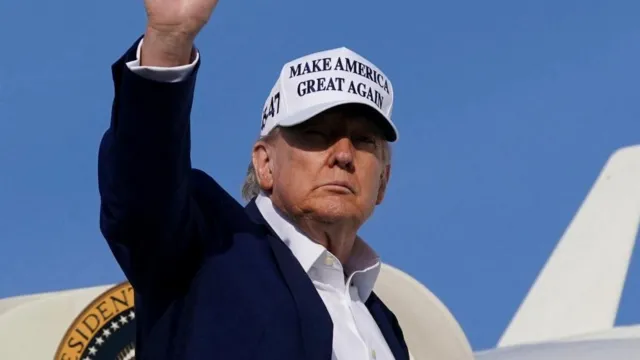The White House has revealed that President Donald Trump has been diagnosed with a chronic vein condition known as chronic venous insufficiency, following speculation sparked by photographs showing bruising on his hand and swelling in his legs.
White House Press Secretary Karoline Leavitt announced on Thursday that Trump, 79, recently experienced leg swelling and underwent a comprehensive medical evaluation, including vascular testing. The results confirmed the presence of chronic venous insufficiency a common condition in elderly individuals, where weakened valves in the leg veins allow blood to flow backward and pool, leading to swelling.
Dr. Meryl Logan, a vascular surgery expert at the University of Texas at Austin, explained that the veins are supposed to propel blood upward toward the heart. However, in this condition, the mechanism fails, and blood flows back down the legs, worsening symptoms over time.
Despite the diagnosis, the White House has assured the public that the condition is “benign and common,” especially in individuals over the age of 70. The president’s physician, Dr. Sean Barbabella, emphasized that Trump showed no signs of deep vein thrombosis, arterial disease, heart failure, or systemic illness. “All results from the tests were within normal limits,” Barbabella noted, affirming the president remains in “excellent health.”
Concerns were initially raised after photos taken at the FIFA Club World Cup final in New Jersey on July 13 showed Trump with visibly swollen legs. Additional images from recent diplomatic meetings, including with Bahraini Prime Minister Salman bin Hamad Al Khalifa, showed bruising on his hand.
According to Dr. Barbabella, the hand bruises were unrelated to the leg condition and are likely due to frequent handshaking combined with the use of aspirin a standard part of Trump’s cardiovascular health regimen. Aspirin can increase susceptibility to bruising, particularly in older adults.
Medical experts agree with the White House’s explanation, noting that minor bruises are common in aging individuals taking blood-thinning medications.
Trump, who is serving his second term, remains the oldest U.S. president to be inaugurated, taking office in January at 78 years and seven months old. Despite recent scrutiny, his medical team insists he is fit for office both physically and cognitively.

